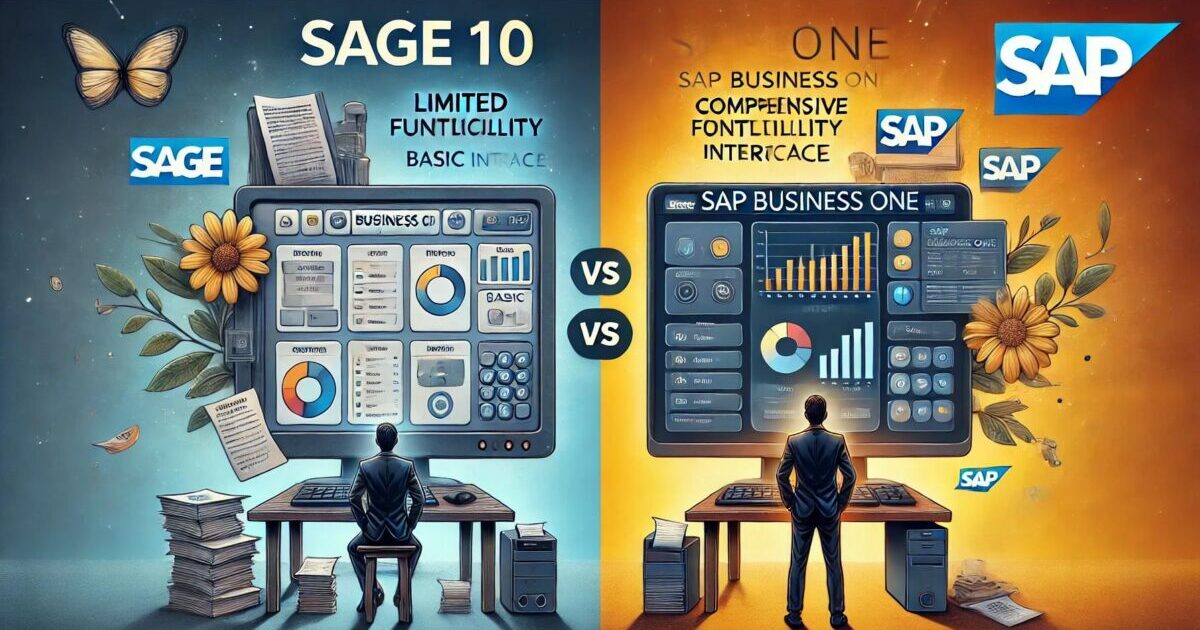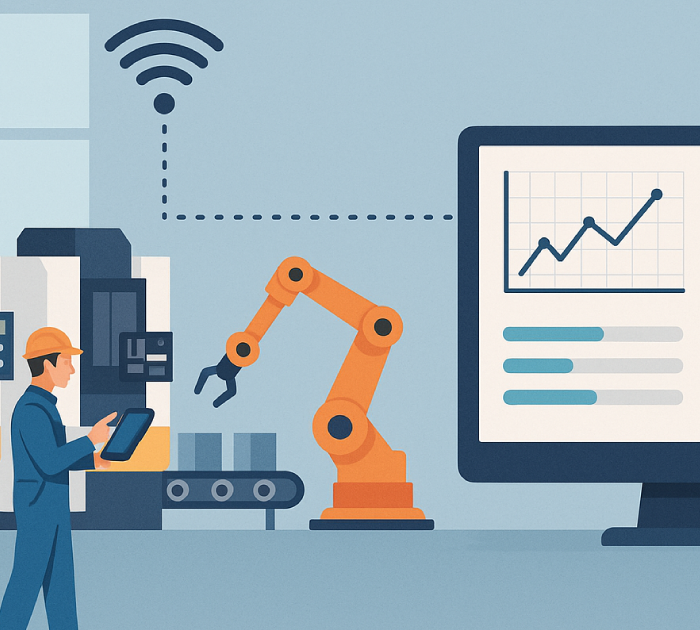Upgrading from Sage 100 to SAP Business One: A Strategic Move for Growing Businesses
In today’s fast-paced business environment, organizations need robust and scalable solutions to manage their operations effectively. Sage 100, formerly known as MAS 90 and MAS 200, has been a reliable choice for many small to medium-sized businesses (SMBs) over the years. However, as businesses grow and their needs become more complex, the limitations of Sage 100 become more apparent. This is where SAP Business One comes into play, offering a comprehensive, scalable, and powerful enterprise resource planning (ERP) solution designed specifically for SMBs. Here are compelling reasons why you should consider upgrading from Sage 100 to SAP Business One.
1. Scalability and Flexibility
Sage 100 is suitable for businesses with relatively straightforward processes and limited scalability requirements. However, as your business expands, you may find that Sage 100 struggles to keep up with your growing needs. SAP Business One, on the other hand, is designed with scalability in mind. It can handle an increased volume of transactions, users, and complex business processes with ease. Whether you are expanding into new markets, adding new product lines, or opening new locations, SAP Business One can grow with you.
2. Comprehensive Functionality
While Sage 100 offers basic ERP functionalities, SAP Business One provides a more comprehensive suite of tools. It covers all aspects of your business, including finance, sales, customer relationship management (CRM), inventory, production, and procurement. The integrated nature of SAP Business One ensures that all your business processes are connected, providing you with real-time insights and control over your operations. This holistic approach helps in making informed decisions, improving efficiency, and driving growth.
3. Real-Time Data and Analytics
One of the significant advantages of SAP Business One over Sage 100 is its advanced data management and analytics capabilities. SAP Business One offers real-time reporting and analytics, allowing you to access up-to-the-minute information about your business performance. The in-built analytics tools provide customizable dashboards and reports, enabling you to track key performance indicators (KPIs) and gain deeper insights into your business. This real-time visibility is crucial for making proactive decisions and staying ahead of the competition.
4. Enhanced User Experience
SAP Business One is known for its user-friendly interface and intuitive design. The system is designed to be easily navigable, reducing the learning curve for new users. SAP Business One also offers a mobile app, enabling you to access your business information on the go. This flexibility ensures that you and your team can stay connected and productive, regardless of your location. In contrast, Sage 100’s interface can feel outdated and less intuitive, which can impact user adoption and productivity.
5. Integration Capabilities
Modern businesses rely on a variety of software solutions to manage their operations. SAP Business One excels in its integration capabilities, allowing you to seamlessly connect with other systems such as e-commerce platforms, point of sale (POS) systems, and third-party applications. This ensures a unified and cohesive system landscape, eliminating data silos and enhancing operational efficiency. While Sage 100 offers some integration options, they are often limited and may require custom development, leading to higher costs and complexities.
6. Cloud Deployment Options
In today’s digital age, cloud-based solutions offer numerous benefits, including reduced IT costs, increased accessibility, and enhanced security. SAP Business One provides flexible deployment options, allowing you to choose between on-premise, cloud, or a hybrid approach based on your business needs. The cloud version of SAP Business One ensures that you can access your data from anywhere, at any time, and from any device. While Sage 100 also offers a cloud version, it lacks the robust features and flexibility that SAP Business One provides.
7. Global Reach and Localization
If your business operates in multiple countries or plans to expand internationally, SAP Business One is the ideal choice. It supports multiple currencies, languages, and compliance with local regulations. This global reach ensures that your business can operate seamlessly across borders. Sage 100, while capable of handling some international operations, does not offer the same level of localization and global support as SAP Business One.
8. Comprehensive Support and Community
SAP Business One is backed by SAP, one of the world’s leading software companies. This means you have access to extensive resources, support, and a vibrant user community. SAP offers comprehensive training programs, user conferences, and online forums where you can connect with other users and experts. This support ecosystem ensures that you can get the most out of your SAP Business One investment. While Sage 100 also has a support network, it is not as extensive or as well-established as SAP’s.
Conclusion
Upgrading from Sage 100 to SAP Business One is a strategic decision that can significantly benefit your growing business. With its scalability, comprehensive functionality, real-time data and analytics, enhanced user experience, integration capabilities, flexible deployment options, global reach, and extensive support, SAP Business One stands out as a superior ERP solution for SMBs. By making the switch, you can ensure that your business is well-equipped to handle the challenges of today and the opportunities of tomorrow.
Are you ready to move off of Sage 100 and get into more modern technology with SAP Business One? Fill out the form below to learn more or schedule a meeting with our team here: Schedule a Meeting.






